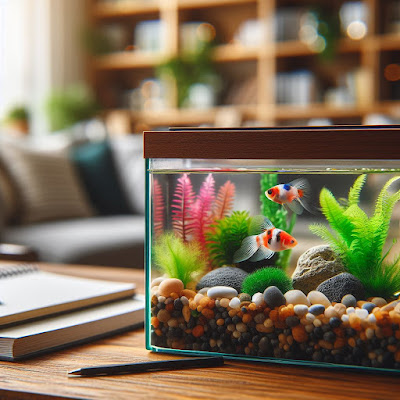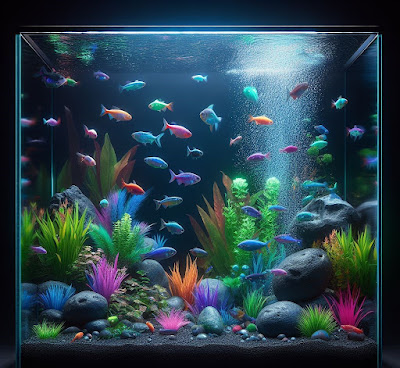Dive Deep into Chemical Aquarium Filtration: Keeping Your Aquatic Friends Safe and Happy!
Hey there, fellow aquarium enthusiasts! Today, we're going to plunge into the fascinating world of chemical aquarium filtration. While mechanical and biological filtration are essential components of your tank's ecosystem, chemical filtration plays a vital role in maintaining water quality and creating a safe environment for your aquatic friends.
What is Chemical Filtration?
Chemical filtration involves using specific media or substances to remove impurities, toxins, and undesirable compounds from your aquarium water. It's like having a superhero in your tank that rescues your aquatic buddies from the perils of water pollutants!
The Benefits of Chemical Filtration:
1. Toxin Removal: Chemical filtration helps eliminate harmful substances like ammonia, nitrites, nitrates, heavy metals, and excess phosphates that can stress or harm your fish and invertebrates.
2. Water Clarity: It enhances water clarity by removing particles that cloud the water, ensuring that you can enjoy a crystal-clear view of your underwater world.
3. Stabilized pH: Chemical media can stabilize pH levels by absorbing or releasing ions, creating a more consistent and suitable environment for your aquatic residents.
4. Odor Control: It aids in reducing unpleasant odors that may develop in your aquarium.
Common Chemical Filtration Media:
1. Activated Carbon: This popular choice is excellent for adsorbing organic impurities, medications, and removing foul odors. Remember to replace it regularly, as it can become saturated.
2. Zeolite: Zeolite is great for ammonia removal, making it a valuable asset in new or cycling tanks.
3. Ion Exchange Resin: This resin is ideal for adjusting water hardness and stabilizing pH levels.
4. Poly-Filter: A versatile medium that can tackle ammonia, nitrites, nitrates, and heavy metals.
Tips for Effective Chemical Filtration:
1. Choose the Right Media: Select the media that targets the specific issues in your aquarium. Different tanks have different needs.
2. Replace Media as Needed: Keep an eye on the saturation of your chemical filtration media and change it according to the manufacturer's recommendations.
3. Maintain a Balance: Don't solely rely on chemical filtration. It should complement mechanical and biological filtration for a well-rounded approach.
4. Monitor Water Parameters: Regularly test your water parameters to ensure everything is in check.
Chemical filtration is an invaluable tool in your aquarium maintenance toolkit. When used correctly, it can transform your aquarium into a thriving ecosystem for your aquatic friends. So, dive deep into the world of chemical filtration and watch your underwater world flourish!
Share your thoughts and experiences with chemical filtration in the comments below. Let's keep the conversation flowing, just like the clear waters of a well-maintained aquarium! 🐠🌿💧








.png)

.png)